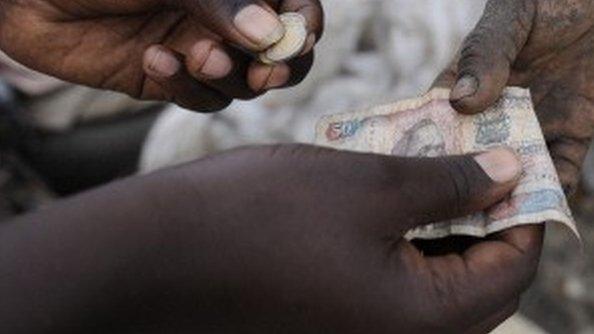Viewpoint: Is Kenya serious about tackling corruption?
- Published
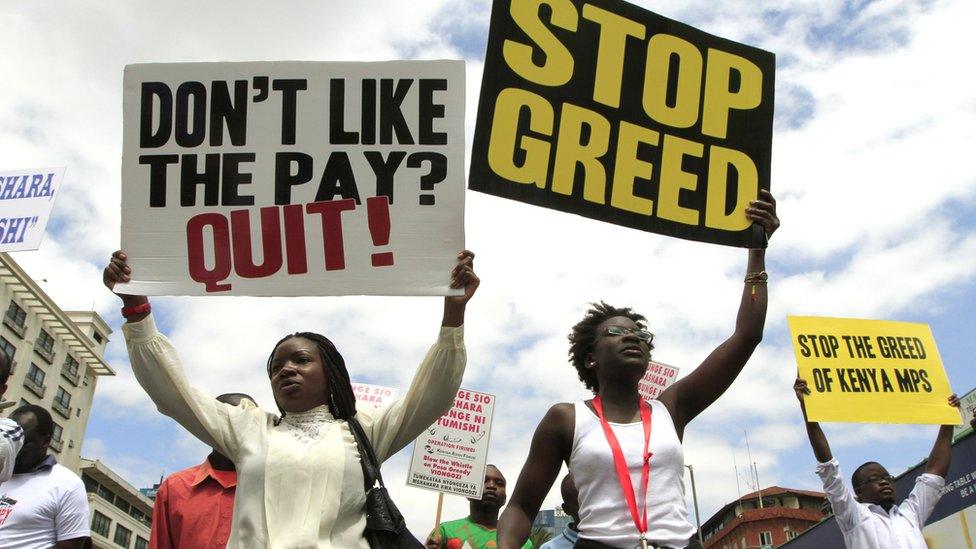
A survey in Kenya found that people thought that greed amongst public officials drove corruption
Kenya's President Uhuru Kenyatta came to power on a pledge to fight corruption, but three years into his presidency and the problem seems as entrenched as ever, with even the country's chief justice saying Kenya has a "bandit economy". Anti-corruption campaigner Boniface Mwangi gives his view.
A recent survey, external by Kenya's anti-corruption commission found that nearly 75% of the population thought there was a very high level of corruption in the country, with many people citing greed amongst public officials as the main reason.
The head of the commission, Philip Kinisu, told the Reuters news agency that the government lost about a third of its budget through corruption, external - a figure that the government disputes.
The losses come in the shape of, among other things, artificially inflated prices the government is charged for tenders, non-existent projects that are paid for and wages for employees who do not exist, also known as ghost workers.
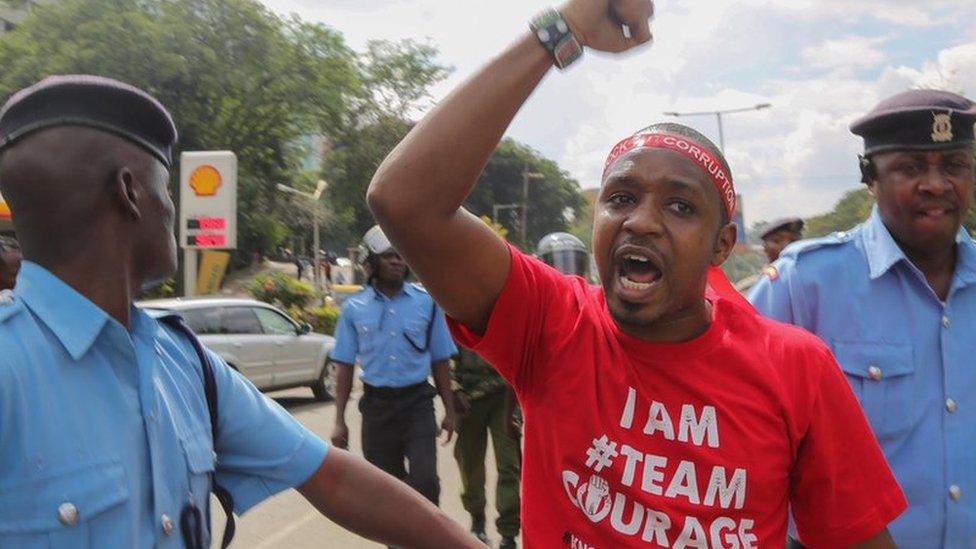
Boniface Mwangi has led a number of anti-corruption demonstrations in Kenya
Corruption is the monster that has sunk its claws into the neck of Kenya's economy, draining the life from the public and private sector.
Transparency International (TI) found Kenya's police, who are supposed to enforce the law, to be the "most bribe prone institution in Kenya, external", but not a single senior police officer is in jail for corruption.
A police recruitment exercise was cancelled in 2014 amid suspicion that some of the recruiters had received bribes.
This pointed to a bigger issue with employing high-calibre staff.
The working conditions are terrible and the primary motivation for many who want to join the police force is the opportunity to seek bribes.
The judiciary has also not been spared.
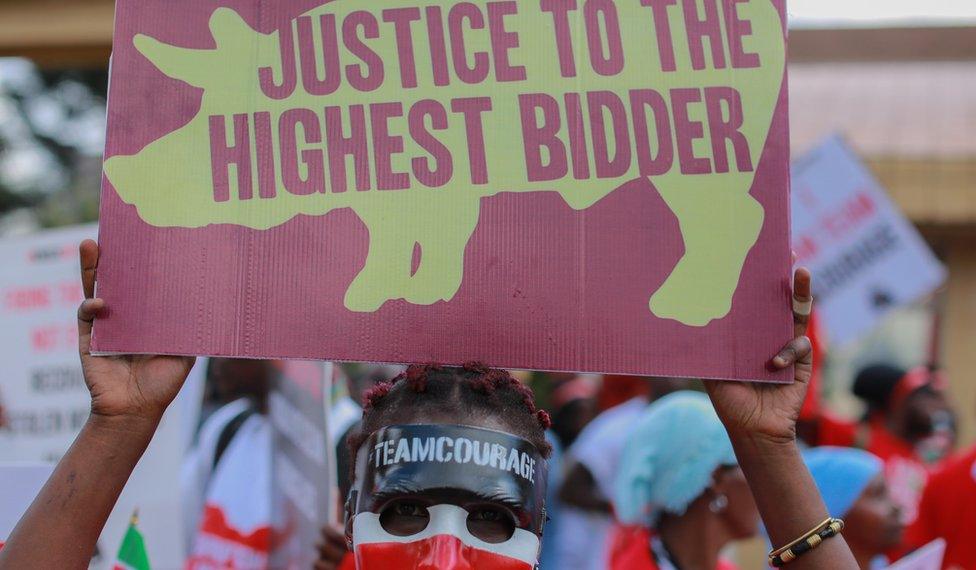
There are concerns that people in the judiciary can be bought
The TI report found that judges are also open to bribery, lending credence to the phrase "why hire a lawyer when you can buy the judge".
One of the country's most senior judges, Justice Phillip Tunoi, is going to be investigated after being accused of taking a bribe to influence his ruling in an election dispute.
Mr Tunoi denies the allegation.
But the affair has damaged what little trust Kenyans had in the judiciary
The attitude of the government towards the corrupt has been very demoralising. On the one hand President Kenyatta declared corruption a threat to national security, external, on the other we do not have people serving jail sentences for the crime.
Our president has been long on talk but short on action, in contrast to President John Magufuli of neighbouring Tanzania, who is admired for his no-nonsense stance.
Mr Magufuli's actions show that a president can lead in the war against graft and impunity.
He has fired the head of the anti-corruption bureau for poor performance, and some senior government staff accused of being corrupt have lost their jobs and are being investigated.
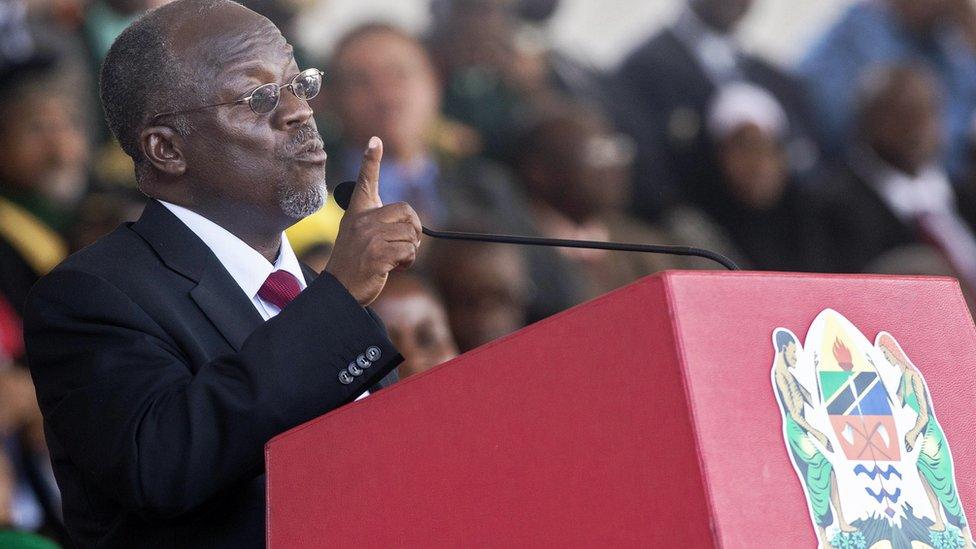
Tanzania President John Magufuli is admired for his no-nonsense style
Today, Kenyans yearn for a Magufuli.
In Kenya, a chicken thief will be sentenced in record time and given a huge sentence, but those who steal and bleed the country dry will rarely answer for their crimes.
The victims of this greed are the ordinary people.
The president seems resigned to the situation, declaring on a recent trip to Israel that Kenyans are "experienced in stealing and perpetuating other crimes".
Chief Justice Willy Mutunga told a Dutch newspaper that Kenya's "bandit economy" is run by mafia-style cartels, external.
The Kenyan people however will rally behind anyone who is able to show that they have the will and the capability to fight corruption.
They are crying for a way out and for justice to be meted out to those who are strangling our economy.
The question is: Will Kenya get a Magufuli?

On Friday 25 March the African Debate on the BBC World Service will be asking "Is corruption Africa's biggest killer?"
You can hear it at 19:00 GMT and find it online afterwards
- Published25 February 2016
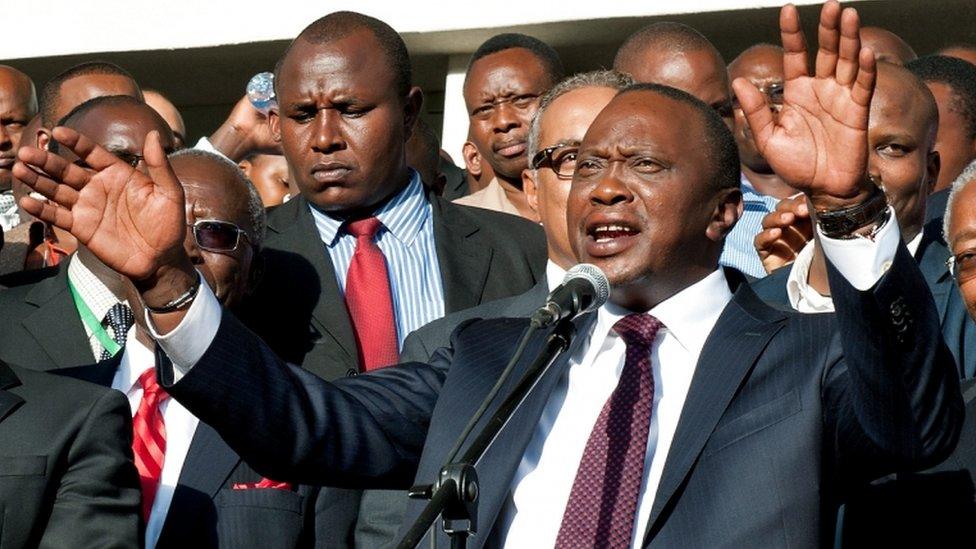
- Published31 October 2013
